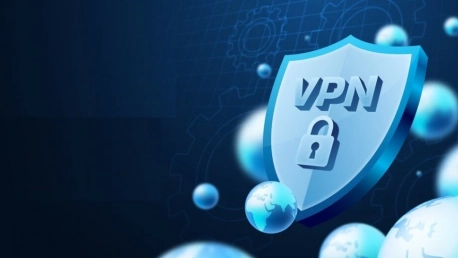As we navigate a world where cyber threats loom larger by the day, the robustness of cybersecurity infrastructure is more crucial than ever. In this evolving battleground, VPNs have been pinpointed as a notable weak link, as emphasized by cybersecurity titan Check Point in a critical alert. The firm’s report casts a spotlight on the dramatic increase in VPN-related cyber attacks, signaling an alarm for the urgent need to reinforce security defenses.
The Increase in VPN Targeted Attacks
Exploiting Weak Security in VPNs
Check Point’s alert signals a red flag for organizations relying on VPNs with only password-based authentication—a security method easily outsmarted by today’s cybercriminals. The surge in attacks is no trivial matter; attackers have honed in on VPN solutions lax in security, preying on them as gateways into corporate networks. These breaches underscore the susceptibility of weak VPN security settings, which when left unchecked, lead to a digital Pandora’s box of data vulnerability and corporate espionage.
CVE-2024-24919: A Vulnerability Exposed
Check Point’s vigilance uncovered a spike in unauthorized login attempts linked to CVE-2024-24919—a compromising vulnerability present in internet-connected gateways with enabled remote or mobile access. Understanding the gravity of this threat, Check Point rapidly released a hotfix, demonstrating a proactive stance. The incident not only speaks to the agility of the firm but also stands as a grim reminder of the persistent cyber risks that corporate gateways face amidst a landscape of sophisticated digital threats.
Best Practices Reach and Cybersecurity Measures
The Inadequacy of Password-Only Authentication
Legacy VPN accounts, safeguarded by mere passwords, set the stage for vulnerability exploitation—a consequence of ignoring the best practices calling for multifactor authentication (MFA). MFA, an essential layer of defense, drastically reduces the chance of unauthorized access, as one compromised password does not grant the hacker carte blanche. Check Point’s analysis revealed that although intrusion attempts were numerically limited, their very existence confirms a concerning trend—repetitive attack patterns zeroing in on exposed remote access points.
Recommendations for Strengthening VPN Security
Acknowledging the gravity of these security lapses, Check Point urges users to administer a thorough review of their VPN configurations. Disabling unused accounts, bolstering authentication protocols with additional measures such as certificates, and ensuring systems are swiftly updated with provided hotfixes are crucial steps in fortifying an organization’s digital defenses. These recommended actions are not just a best practice—they’re a mandate for entities governed by stringent regulatory standards, reflecting the paramount importance of maintaining cybersecurity sovereignty.
The Broader Implications of VPN Vulnerabilities
Attacks on Other Edge Devices
Check Point’s warning reaches beyond their own suite of products, illuminating a broader pattern: an uptick in assaults targeting a variety of edge devices including firewalls with remote access capabilities. Manifesting as both a battleground for opportunistic hackers and a theater for state-sponsored cyber warfare, this landscape is now prey to relentless attacks, such as those carried out by the infamous Brutus malware botnet, which employs brute force to compromise a multitude of devices across different vendors.
The Threat Landscape and Regulatory Compliance
In today’s digital environment, where the peril of cyber threats is ever-expanding, fortifying our cybersecurity infrastructure has become paramount. The battlefield of cyber security is constantly evolving, and amidst this change, Virtual Private Networks (VPNs) have emerged as a significant vulnerability. This was underscored by a critical alert from cybersecurity behemoth Check Point, highlighting a surge in VPN-targeted cyber attacks. Their report serves as a clarion call for immediate enhancement of security measures. As the wave of these attacks grows, the pressing need for strengthened cyber defenses could not be clearer. Organizations and individuals alike must heed this warning and bolster their online protection systems against the increasingly sophisticated threats posed by adversaries in the cyber realm.









